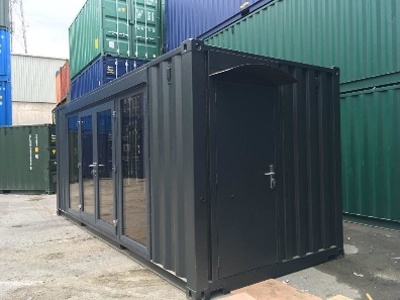EOH consulting engineering subsidiary Dihlase has designed a modular intensive-care unit (ICU) and isolation ward that contains all necessary heating, ventilation and airconditioning, medical gas, electricity, water, air, communication, technology and sanitation infrastructure systems.
The modular ICUlate ward can be built and deployed where needed in Southern Africa within weeks.
ICUlate, is an “intensive care and isolation ward ‘in a box'” that can rapidly provide healthcare professionals with additional capacity, says EOH regional manager Mohammed Rawat.
The ICUlate module is built within a 12 m container and is one of two designs the firm created to deal with the rise in demand for isolation wards and ICU beds as the number of Covid-19 infections spread, as well as in preparation for the peak of infections when the greatest demand for ICU beds will be experienced.
It also complies fully to international isolation ward and ICU standards.
“The ICUlate can be built in two to three weeks, dropped off where needed and then linked to a hospital or healthcare facility. Dihlase is currently retrofitting the ICUlate specialist extract design and our other solutions for private hospitals and provincial government departments in Gauteng, KwaZulu-Natal and the Western Cape,” Rawat tells Engineering News.
This will enable healthcare facilities to expand their ICUs by adding as many bolt-on facilities as necessary. The module complies with all the national requirements for water, sanitation, insulation, fire safety and air management as used in medical operations, he says.
“The ICUlate design is based on the innovative extraction system we had designed for tuberculosis hospitals in KwaZulu-Natal about eight years ago. The specialist ventilation system was specifically designed to provide maximum protection of healthcare workers and visitors from communicable diseases cross-infection.”
Further, another solution offered by Dihlase is retrofitting of mechanical and electrical services to to convert general wards, empty wards and unused spaces into functional isolation wards.
The company is mainly involved in this work currently, but has also completed designs to enable the rapid construction of a temporary hospital that can be completed within a few weeks.
“We did not know the temporary hospital capacity currently required by clients, so we created a modular design based on clusters of 25 beds. Using our prefabricated designs incorporating a few ICUlate modules linked together, we can build a temporary hospital facility of 20 to 500 beds within a few weeks,” says Rawat.
The company’s work teams have essential service permits and are able to build these solutions where needed, he adds.
The main design criterion was time, and the design is centred on enabling healthcare facilities to prepare for the peak of infections and for the solutions to be quickly deployed, he says.
However, the ICUlate modules can also be modified to be used as screening laboratories and can be changed to suit the healthcare facility’s needs once the peak of infections has passed, as well as relocated, if necessary.
Additionally, Dihlase can provide its solutions to other Southern African countries, and has already received interest from Lesotho and responded with a proposal, says Rawat.
“One of the main reasons we started this project was to protect healthcare workers, providing them with state of the art tools and conditions they require to treat patients and prevent them from getting infected.”
“While the ICUlate solution is designed specifically for the Covid-19 epidemic, they can be adapted and will provide value for our private and government clients over the long term,” he concludes.
This article was first published in the Creamer Media’s Engineering News on the 19th of May 2020.
